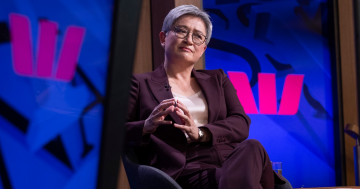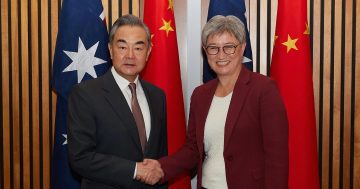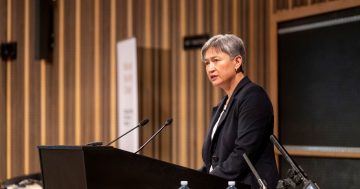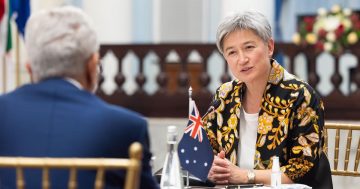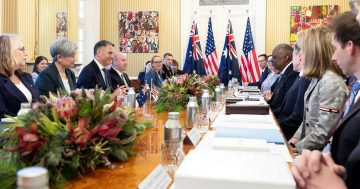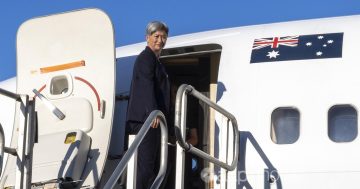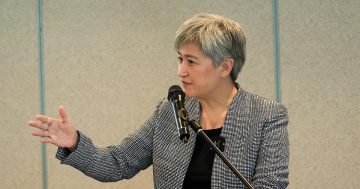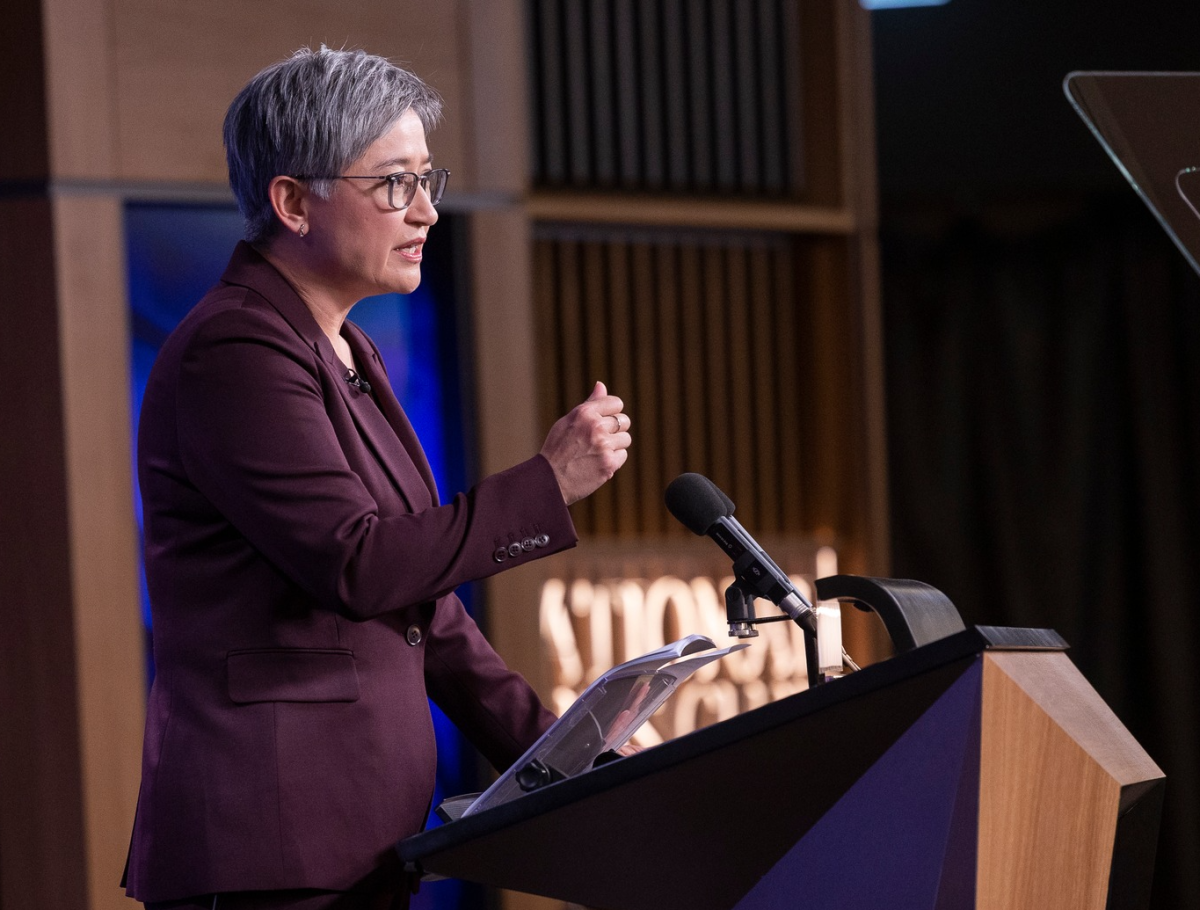
Foreign Minister Penny Wong addresses the National Press Club on 17 April. Photo: National Press Club.
Foreign Minister Penny Wong has stressed the need to harness all elements of Australia’s national power to advance its interests and to cool simmering tensions in the face of the “grave” implications of unchecked strategic competition in the region.
During a broad-ranging speech to the National Press Club in Canberra on Monday (17 April), Ms Wong said she wants to shape our region so that it reflects Australia’s national interest and a shared regional interest.
“Those national and shared interests are in a region that operates by rules, standards and norms – where a larger country does not determine the fate of a smaller country; where each country can pursue its own aspirations, its own prosperity,” she said.
She said that by shaping the region through coordinated statecraft, Australia will contribute to a regional balance of power that will result in peace.
“Strategic competition is operating on several levels,” she said.
“Domains that we might prefer to separate – economic, diplomatic, strategic, military – are all interwoven and all framed by an intense contest of narratives.
“But as well as understanding how competition is operating, we need to understand what is being competed for – that it is more than great power rivalry and is, in fact, nothing less than a contest over the way our region and our world works,” she added.
She said commentators and strategists described these tensions as great powers competing for primacy.
“They love a binary,” she said. “And the appeal of a binary is obvious. Simple, clear choices, black and white.
“But viewing the future of the region in terms simply of great powers competing for primacy means countries’ own national interests can fall out of focus. It diminishes the power of each country to engage other than through the prism of a great power.”
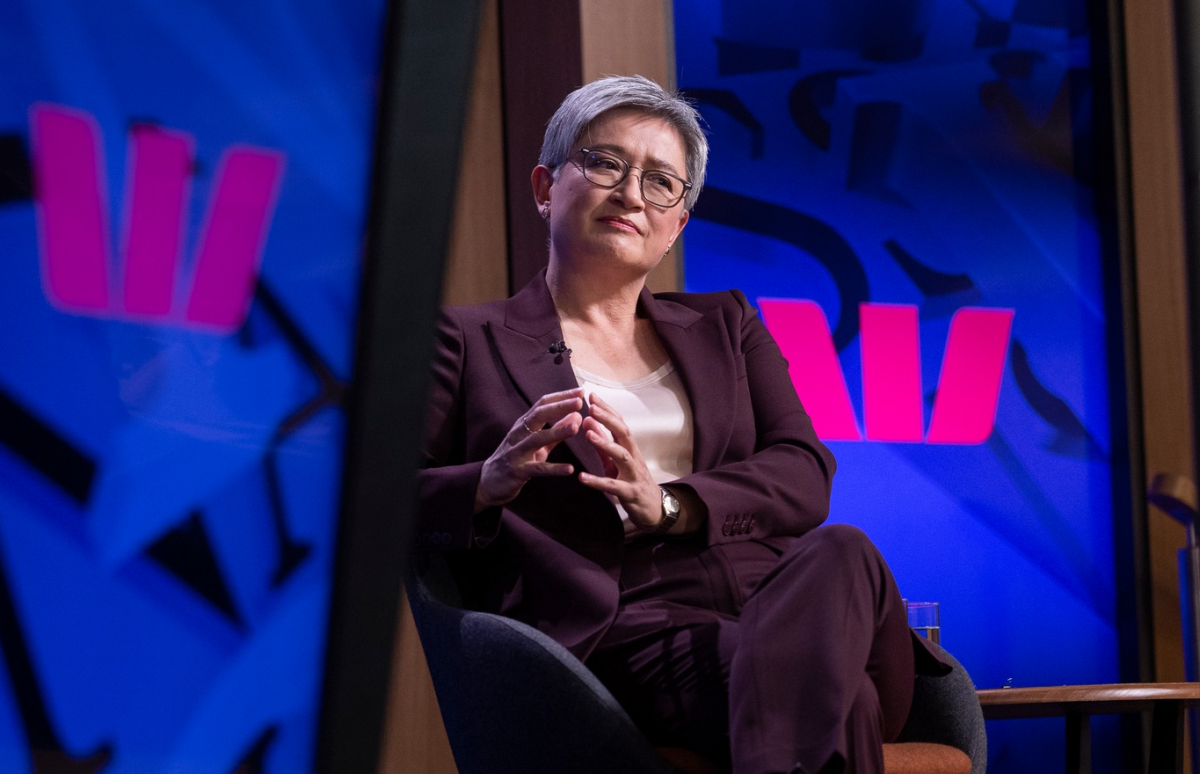
Ms Wong said people in her position “should resist the temptation” to form an opinion on the future of Taiwan. Photo: National Press Club.
Ms Wong highlighted Australia’s long first nations culture and its increasingly diverse modern culture.
“When Australians look out to the world, we see ourselves reflected in it, just as the world can see itself reflected in us,” she said.
“What that means is we have the ability to build on common ground with people around the world. This is a powerful national asset for building alignment.”
Ms Wong also specifically referred to China several times when highlighting the growing tensions in the region, particularly in relation to the rapid modernisation of China’s People’s Liberation Army, the militarisation of low-lying islands in the international waters of the South China Sea, China’s threats to reclaim Taiwan by force if necessary, and North Korea’s continued build-up of its nuclear weapons and ballistic missile capabilities.
“Coercive trade measures, unsustainable lending, political interference, disinformation, and reshaping international rules standards and norms that have benefited smaller countries, from trade to human rights – these all encroach on the ability of countries to exercise their agency,” she said.
“Altogether, this combination of factors and the risk of miscalculation will comprise the most confronting circumstances in decades,” she said.
“So, this is why I’m so steadfast in refusing to engage in speculation about regional flashpoints, whether they be the Himalayas, Taiwan, the Korean peninsula, or Myanmar.
“There has been much-frenzied discussion in political and media circles over timelines and scenarios when it comes to Taiwan. Anyone in positions like mine who feels an urge to add to that discussion should resist the temptation. We do not want to see any unilateral change to the status quo. We call for the peaceful resolution of cross-Strait issues through dialogue, without the threat or use of force or coercion.
“I’ll say it now at the National Press Club to avoid any possible misunderstanding: our job is to lower the heat on any potential conflict while increasing pressure on others to do the same,” she said emphatically.
“In our China relationship specifically, we will become more consistent and continue to do as we have since coming to office, cooperate where we can, disagree where we must, manage our differences wisely and, above all, engage in and vigorously pursue our own national interest.”












